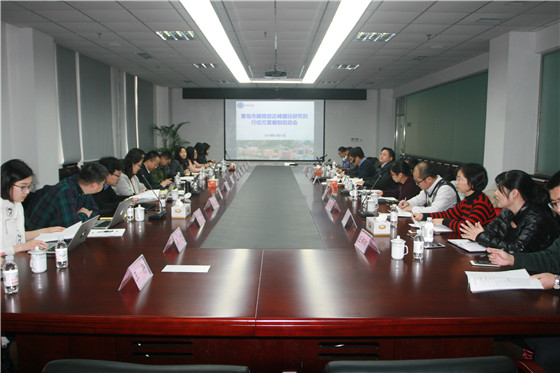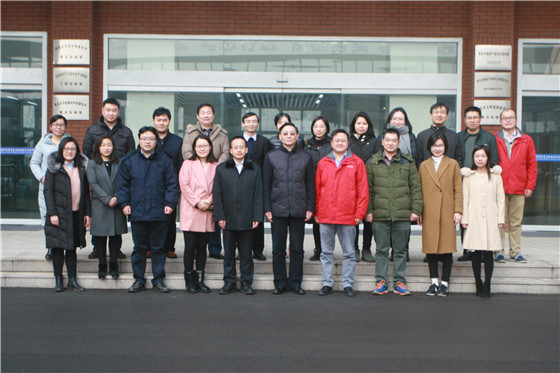Qingdao initiates carbon emission peak research
( chinadaily.com.cn )
Updated: 2018-01-19
|
|||||||||
The coastal city of Qingdao, Shandong province has kicked off a program of research into carbon emission peaking amid China's continuous efforts to combat climate change and realize sustainable development.
The research will mainly be conducted by the Qingdao Carbon Data and Carbon Assessment Engineering Laboratory (QCEL), according to a high-level meeting held in Qingdao on Jan 17.
The meeting invited officials and experts around the country to discuss the action plan of the coastal city's carbon emission peak research.
 |
|
A high-level meeting is held to discuss carbon emission peaking research in Qingdao, Shandong province on Jan 17. [Photo/qibebt.cas.cn] |
Yang Hongwei, a research fellow of the Energy Research Institute (ERI) of the National Development and Reform Commission of China, gave a talk entitled "Qingdao's carbon emission peaking scenario study" which outlined the commission's related policies and the ERI's guiding role in the upcoming peaking research.
Yang Yanli, an associate research fellow of QIBEBT, introduced Qingdao's basic economic and social situations and defined QCEL's role in the new research, which will be focused on how to acquire and evaluate local carbon emission data.
"The carbon emission peaking path research plays an important part in the city's goal of becoming a national central city an innovative and livable metropolis," said Ren Zhengang, director of the Qingdao Blue Economic Zone, which is affiliated to the Qingdao Development and Reform Commission.
 |
|
Participants of the meeting pose for a photo. [Photo/qibebt.cas.cn] |
"We will conscientiously build a basic data information system to follow the path of carbon emission peaking as well as Qingdao's low-carbon development in the future," said Lu Xuefeng, deputy director of QIBEBT.
Lu hoped that the research results will finally provide an appropriate action plan for government departments.




